Nowadays, computers are getting very smart. They are changing how we do things. This is especially true for online advertising and selling. This change is called digital marketing.
A big part of digital marketing is ensuring people can easily find your website. They need to find it on search engines like Google. This is called Search Engine Optimization or SEO.
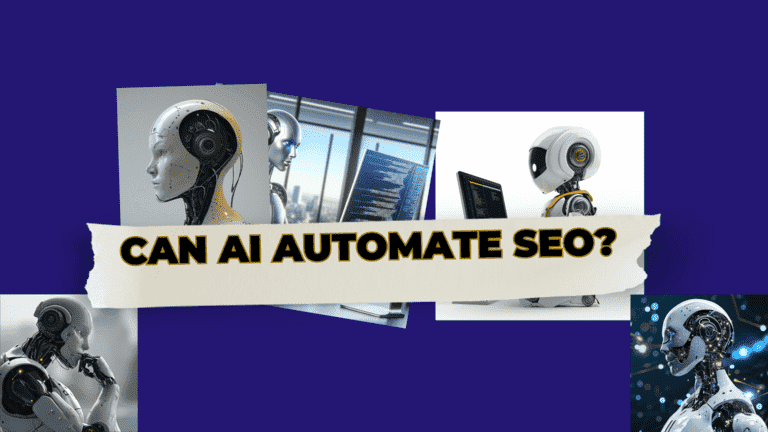
In the past, people had to do all the SEO work themselves. They would choose the right words. They would write the content. They would set everything up so search engines could find the websites.
But things are changing with intelligent computers called Artificial Intelligence (AI).
AI can look through lots of information very fast. It can spot trends and give good tips on how to make a website more accessible to find. This means tasks like choosing words and improving content can be done faster and better with AI. AI can also track how well a website is doing.
Because of AI, people who work in digital marketing have more time to develop new ideas and strategies.
Key Takeaways
- Artificial intelligence (AI) can automate many search engine optimization (SEO) tasks. This can change how we do digital marketing.
- AI tools can study data, spot patterns, and make suggestions. This makes work more efficient and precise.
- Using AI to automate SEO work lets marketers focus more on plans and creative ideas.
- AI can optimize keyword research, content writing, and reporting. This can improve digital marketing campaigns.
- The future of digital marketing is using AI to enhance SEO methods. This can lead to better results.
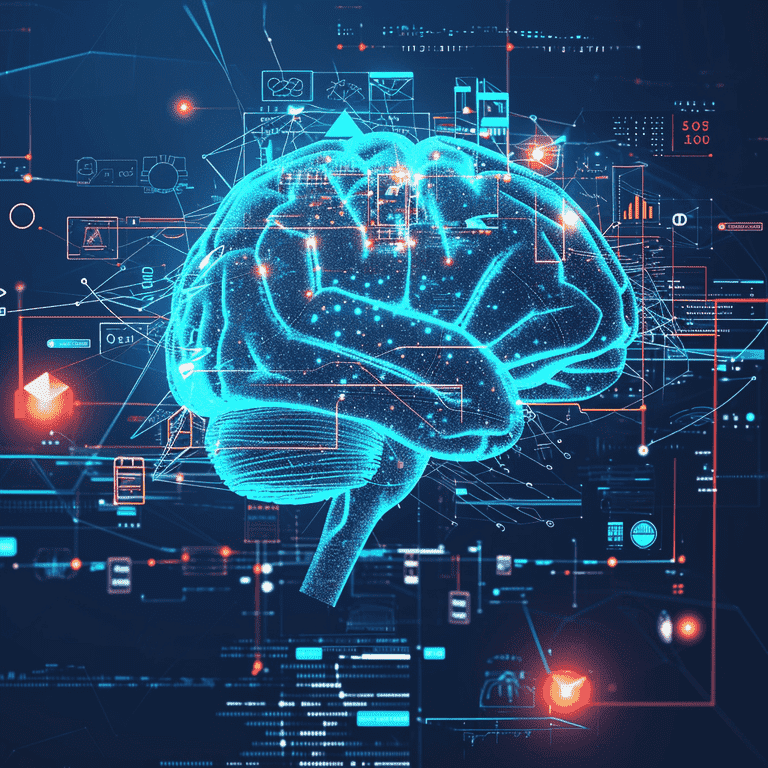
Understanding AI’s Role in Modern SEO Strategies
Today’s digital landscape cannot overlook the role of artificial intelligence (AI) in SEO. AI could revolutionize how businesses optimize their websites. It could help them rank higher in search results. This section will explore the various aspects of AI’s role in modern SEO and how it reshapes the industry.
Defining Artificial Intelligence in SEO
Let’s talk about how AI changes how we make websites appear better on search engines. AI means using intelligent computer programs. They do tasks automatically and make websites work better. With AI, companies can use tools to help them pick the right words. The tools also help make good content and improve websites.
How AI Enhances Keyword Research and Content Creation
Keyword research is integral to SEO, and AI can make it even better. AI tools help businesses look at more keywords, find long ones, and learn what users want. This helps companies to make content that their audience likes. It also helps them rank higher on search engines.
AI can also help make content. Natural Language Processing (NLP) helps computers guess words and make better articles. AI can find problems in content and suggest fixes. This helps websites have key info for users and meet search engine rules.
The Impact of Machine Learning on Search Algorithms
Machine learning is a part of AI and helps computers guess words. It’s like having a robot helper. It can learn from lots of examples and then make a good guess when it sees something new. This robot helper is great at understanding words. It can help computers find information faster and better.
Search engines use machine learning to understand what people want when they search. They can also use it to determine whether a website is good. This way, the search engine can show you the best websites when you search for something.
As AI gets better, it will help more with SEO. SEO is like a game. Make your website easier to find and more popular on search engines. AI can help you improve your website to appear higher in search results. This can help your business get more customers and make more money.
In the next part, we’ll talk about how AI can help with SEO and how it compares to having a human expert. We’ll see who’s better at helping websites and online content. They help them be found and liked by search engines.
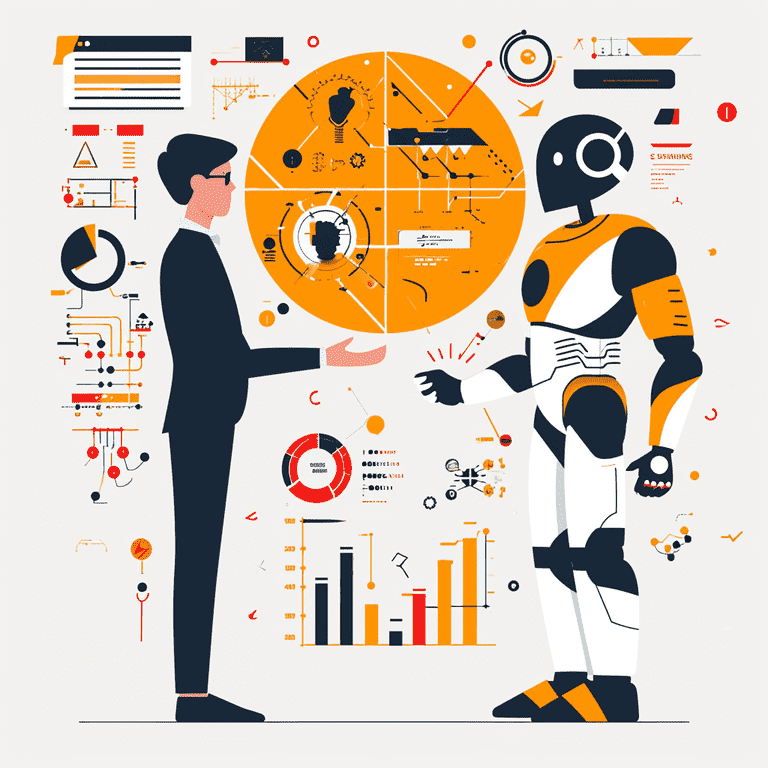
Artificial Intelligence vs. Human SEO Experts: Who Wins?
In this part, we will look at how AI can help with SEO and compare it to human SEO experts. We will talk about where AI beats humans. We will also talk about how it can improve website optimization.
The Strengths of AI in SEO
AI can be very helpful for SEO. It can quickly look at lots of data and find patterns. This allows faster and better decision-making. AI can also make good predictions and suggestions for SEO strategies. It can do many tasks at the same time to optimize many websites. And it keeps learning and improving to stay up to date.
AI is excellent at some parts of SEO:
– Finding relevant keywords by looking at lots of data
– Writing high-quality content based on what users want
– Analyzing website performance to recommend improvements
– Tracking metrics and performance to know what changes to make
But human SEO experts are still very important. Humans understand complex situations better. They can adapt to new trends. And they can connect with users better. The best approach combines AI and human experts. AI handles data analysis and automation. Humans make strategic decisions and get creative.
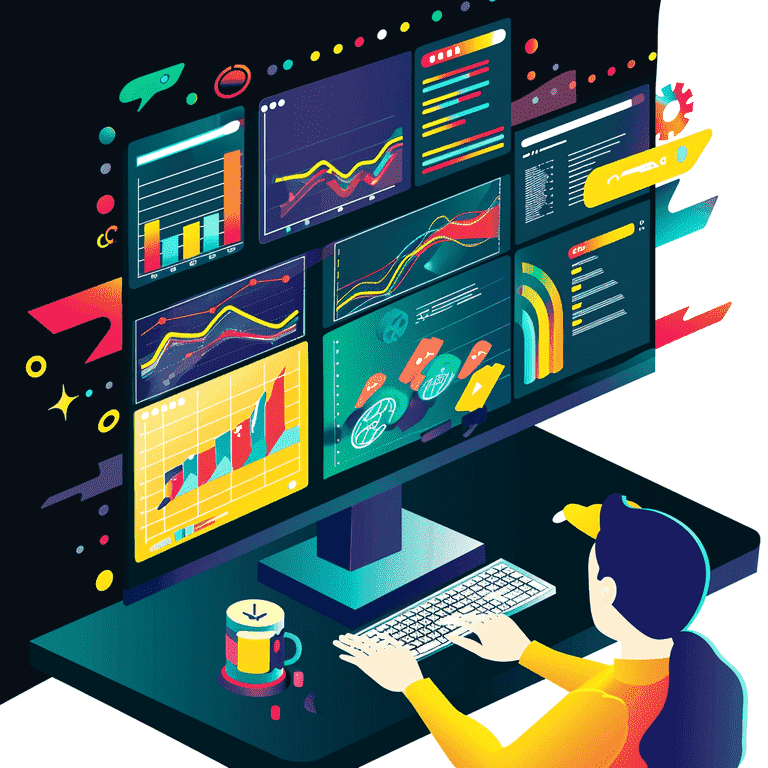
Enhancing User Experience with AI: SEO’s New Frontier
In this section, we will explore how AI transforms the user experience in SEO. Interactive AI features and personalized content are a game-changer. They enhance user engagement and satisfaction.
Interactive AI Features that Boost User Engagement
Smart helpers on websites can answer questions and give tips. These helpers make using websites easier and more fun.
Helpers like chatbots let you ask questions and get answers right away, any time. The helpers give ideas fit for you. This makes using websites feel more personal.
Businesses use these competent helpers to help customers. The helpers can answer questions at any hour. This saves the business time and money. It also keeps customers happy so they’ll come back.
The helpers make using websites feel like talking with a friend. This makes customers trust the business more.
Personalized Content and Search Results with AI
Personalized content is important for user experience with AI. AI systems can analyze what users like based on their behavior. Then AI can give users things that match their interests.
For example, shopping websites may suggest products to a user. They do this based on what the user has looked at before. By showing things the user likes, the website keeps the user engaged.
AI also helps search engines give better results. It can understand what the user is searching for. Then it can provide the most relevant results to match the user’s search. This makes searching more personalized and useful.
In all, AI customizes content and search results to fit the user’s preferences. This improves their experience. It keeps them more engaged with relevant information.
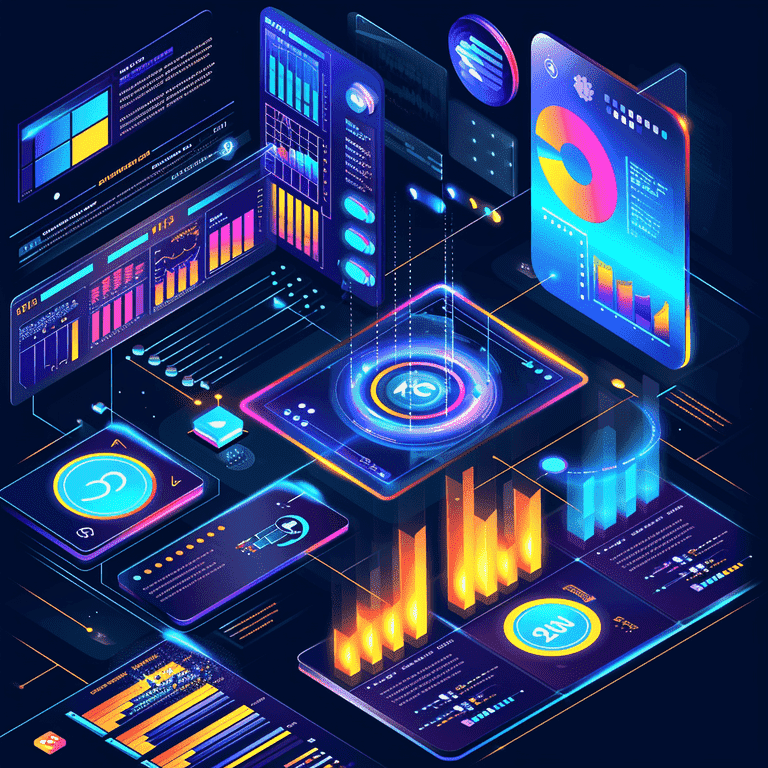
AI-Driven Analytics: Shaping the Future of SEO Metrics
Artificial intelligence (AI) programs are changing the world of search engine optimization (SEO). SEO helps websites rank higher in search engines like Google. AI programs help SEO experts. They make better decisions about how to improve website rankings.
AI programs can analyze large amounts of data about websites. This gives SEO experts a deep understanding of how websites perform. It shows what makes users click on them. AI programs can uncover hidden patterns and trends. This allows SEO experts to optimize, or improve, their strategies.
AI programs have a major advantage. They find connections between different SEO metrics. They also find if users engage with a website. By looking at things like click-through rates and time on site, AI can show what parts of a website work well. SEO experts can then tweak website content to increase user satisfaction.
Also, AI programs can predict future SEO trends. They can also predict changes in search engine algorithms. AI algorithms can detect patterns in past data. They can use these patterns to forecast changes in search rankings. This allows digital marketers to adapt their strategies ahead of time.
In summary, AI analytics tools are revolutionizing SEO by enabling data-driven decision making. SEO experts use AI to get insights. The insights help websites rank higher and match the latest search engine updates.
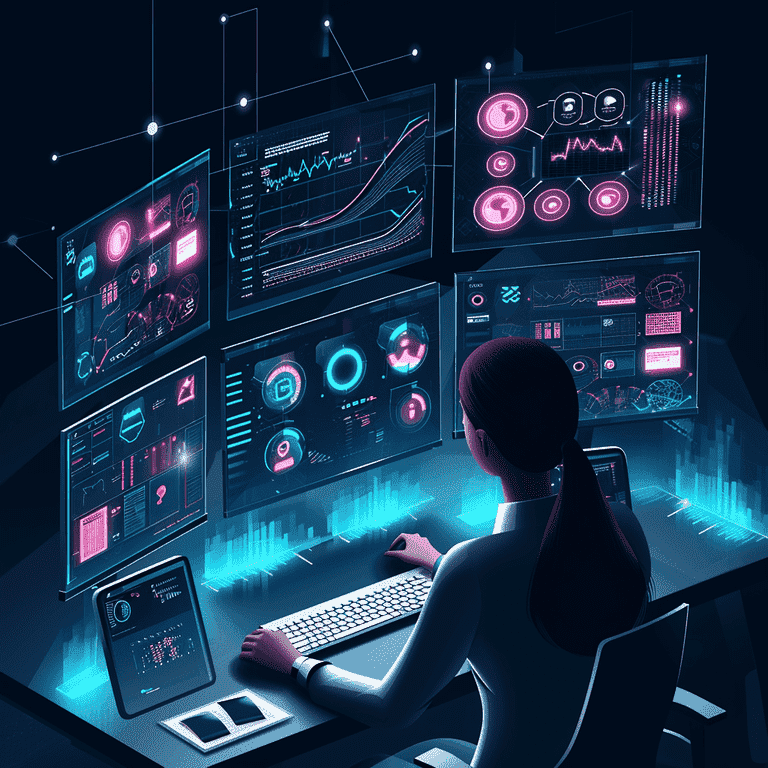
SEO Automation: How to Leverage AI for Efficient SEO Management
SEO experts today want to work smarter. SEO means search engine optimization. It helps people find things online. New AI technology can help SEOs do their job better.
AI is artificial intelligence, like computers that can think. AI can do some SEO work automatically. This saves SEOs time. It helps them get more done.
AI can help SEOs in big ways. It can help them:
– Save time on routine SEO tasks
– Work faster and get better results
– Make their SEO plans better
The new AI tools are a big deal for SEOs. They let SEOs work faster and smarter. This helps websites get found more easily in searches.
Automating On-Page Optimization with AI Tools
Getting good search engine rankings takes work. You need to carefully look at each web page and optimize it. Doing this by hand takes a lot of time. AI tools can automate many optimization tasks:
– Find good keywords people search for often.
– Check content quality and structure. Give ideas to improve.
– Create optimized titles and descriptions to get more clicks.
– Analyze images and recommend better alt text and names.
With AI helping, SEO experts can focus on big picture planning instead of detailed tasks. This makes SEO work much more efficient and effective.
AI and the Streamlining of SEO Reporting
Good SEO reporting is very important for success. Traditionally, making full SEO reports took much manual work. This work was to collect and analyze data and format reports. But now, AI tools can automate much of this process to make it easier.
These AI tools can:
– Track website traffic data like search traffic, bounce rates, and conversion rates.
– Monitor keyword rankings and performance over time.
– Keep track of backlinks and find new link building opportunities.
– Create customizable reports with helpful visuals and action steps.
You can use AI for SEO reporting. It lets marketers save time, avoid mistakes, and better understand their SEO results. This allows them to make data-based decisions and optimize more effectively.
In summary, AI-powered SEO automation has great potential to improve efficiency. Automating tasks and reporting can save marketers time. It helps them be more productive and get better results. As this technology keeps advancing, AI will likely play an even bigger role in SEO’s future.

Wrapping Things Up
As we finish this article, it’s clear the future of SEO depends on AI and human experts working together. Both AI and human professionals have useful strengths. Combining these strengths can lead to the best results in digital marketing.
AI is great at analyzing lots of data, finding patterns, and automating tasks. But human professionals bring creativity, intuition, and critical thinking. They can achieve powerful teamwork by using AI tools and human skills. This teamwork brings success.
Looking ahead, AI promises to keep influencing SEO in positive ways. AI will keep evolving and shaping the industry. It will impact search algorithms, content creation, and user experience. Yet, it’s important to know AI does not replace human professionals. Instead, it makes their abilities stronger and streamlines their workflows.
In conclusion, embracing how AI and humans work together is key. It’s key to staying ahead in the always-changing world of SEO. Digital marketers can do great things when they mix the power of AI and people’s special talents. Working together, they can find new ways to market online. They can come up with creative ideas and get really good results. AI is smart in its own way. And people see things computers miss. Using both AI and human skills makes digital marketing better.
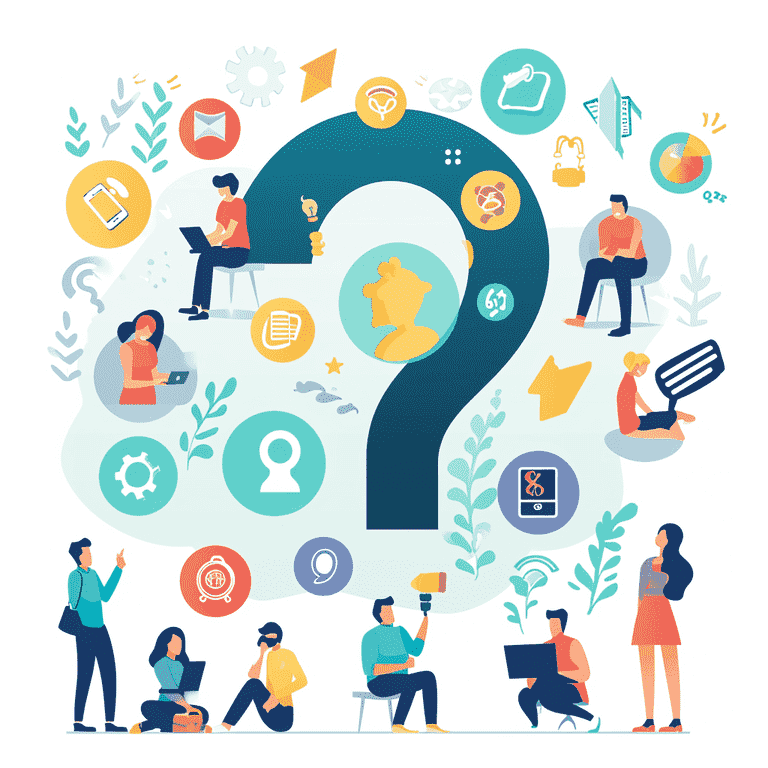
Frequently Asked Questions
What is AI?
AI refers to computer programs and systems. They can perform tasks that usually need human intelligence. These tasks include visual perception, speech recognition, and decision-making. AI allows machines to mimic human abilities like learning and problem-solving.
How does AI help with SEO?
AI can automate and improve many SEO tasks. It can do things such as keyword research. It can also do content optimization, technical SEO audits, backlink analysis, and reporting. AI tools use data analysis, machine learning, and language processing. They provide insights and recommendations. These can boost SEO.
What are some key benefits of using AI for SEO?
Some significant benefits are:
Saves time by automating routine SEO tasks
Provides data-driven insights to inform SEO strategies
Helps create higher quality content that users want
Allows optimizing at scale across many pages and websites
Learns continuously from data to improve over time
What SEO tasks can AI automate?
AI can help automate:
Keyword research – finding high-value keywords by analyzing search data
On-page optimization – evaluating pages and generating recommendations
Content creation – writing drafts and optimizing existing content
Technical SEO audits – crawling sites to identify issues to fix
Backlink analysis – finding link building opportunities
Reporting – tracking KPIs and visualizing performance data
Can AI completely replace human SEO experts?
No, AI cannot fully replace humans in SEO. AI excels at automating repetitive tasks, crunching data, and detecting patterns. But, humans are still vital for high-level strategy, creativity, and solving complex problems. They also handle exceptions. The most effective approach is combining the strengths of both AI and human experts.
How does AI help create better content?
AI content tools leverage natural language processing to analyze text and uncover insights. This allows for generating content ideas. It also lets you improve readability. You can check grammar and spelling. It also helps with word choice and sentence structure. The result is higher quality content tailored to audience needs.
How does AI enhance the website user experience?
AI powers features like chatbots, personalized recommendations, and interactive search. They create a more engaging, intuitive user experience. These tools learn from user behavior data to deliver customized content. AI also enables voice search optimization and automated image tagging.
What are the limitations of relying on AI for SEO?
Some limitations are:
AI lacks human judgment for complex SEO decisions
AI tools are only as good as the data they are trained on
Constant human oversight is required to check AI’s work
AI may miss qualitative factors like user sentiment
SEO best practices can change quickly, requiring AI model updating
How might SEO change as AI capabilities grow?
As AI continues advancing, it may:
Take over an increasing part of repetitive SEO work
Help SEOs scale their efforts across more sites
Enable more personalized, intent-based search experiences
Continuously optimize pages based on real-time user signals
Help search engines get better at natural language queries
AI will let SEOs focus on strategy, creativity, and complex tasks. AI will handle data-heavy optimization and automation.
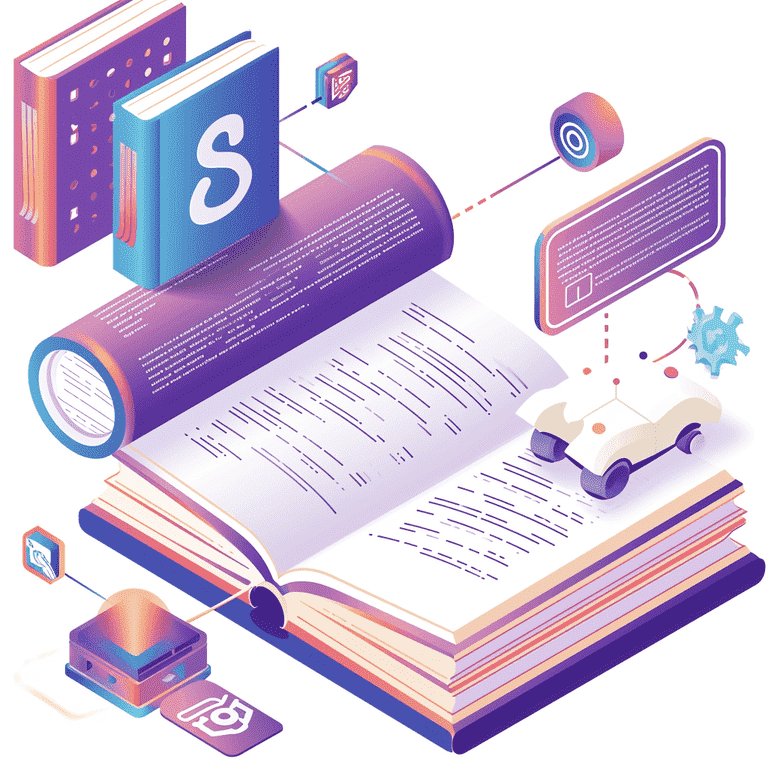
Glossary
Artificial intelligence (AI): Computer systems and software that can perform tasks and exhibit behaviors commonly thought to require human intelligence and perception. Key capabilities include learning, reasoning, problem-solving, vision, natural language processing, speech recognition, and more.
Machine learning: A subset of AI involving algorithms that can learn and improve from experience and data without explicit programming. Machine learning powers many AI applications by detecting patterns and making predictions.
Natural language processing (NLP): An AI technique that enables computers to understand, interpret, and generate human language, including text or voice data. NLP drives applications like chatbots, search engines, and content generation.
Search engine optimization (SEO): Optimizing websites to achieve higher rankings in search engine results pages (SERPs), earning more organic traffic and visibility. SEO considers both technical website factors and content-related factors.
Keywords: Specific words and phrases users search for on search engines relevant to a particular topic or query. Keyword research is foundational for SEO to optimize pages around terms people use.
Ranking signals: Factors influencing how search engines like Google determine the order of websites in SERPs for a given search. Examples include keywords, quality content, site speed, authority, etc.
Crawl budget: The limit search engines place on how many pages of a site they will scan or crawl at a time, impacting new content being indexed. Large or complex areas may exceed the budget.
On-page SEO: Optimizing individual webpages with titles, headings, meta descriptions, URLs, and content to improve search visibility and rankings for target keywords.
Off-page SEO: Website optimization factors external to individual pages like backlinks, site authority, and structured data markup that signal quality to search engines.
Link building: An off-page SEO tactic focused on earning backlinks from other relevant, high-authority sites to signal the validity of a site to search algorithms.
Search engine algorithm: The complex, secret ranking formula used by search engines like Google to assess websites and decide their order in search results in seconds. Algorithms are updated constantly.

A Special Offer for You
Small business owners, remember: the SEO tips on this page are valuable. They come from our co-founder, Matt LaClear.
Matt has a track record since 2009. He has used his expertise in over 13,277 SEO campaigns to help many clients.
This is a unique opportunity to gain insights from a seasoned professional. We encourage you to make the most of Matt’s special offer.
It’s a free, custom SEO strategy call.
This is your chance to get advice tailored to you. It will help you propel your business forward in the digital world.
Don’t miss this chance. It’s exclusive. It will help your business’s SEO.
You’ll get guidance from an industry expert!

